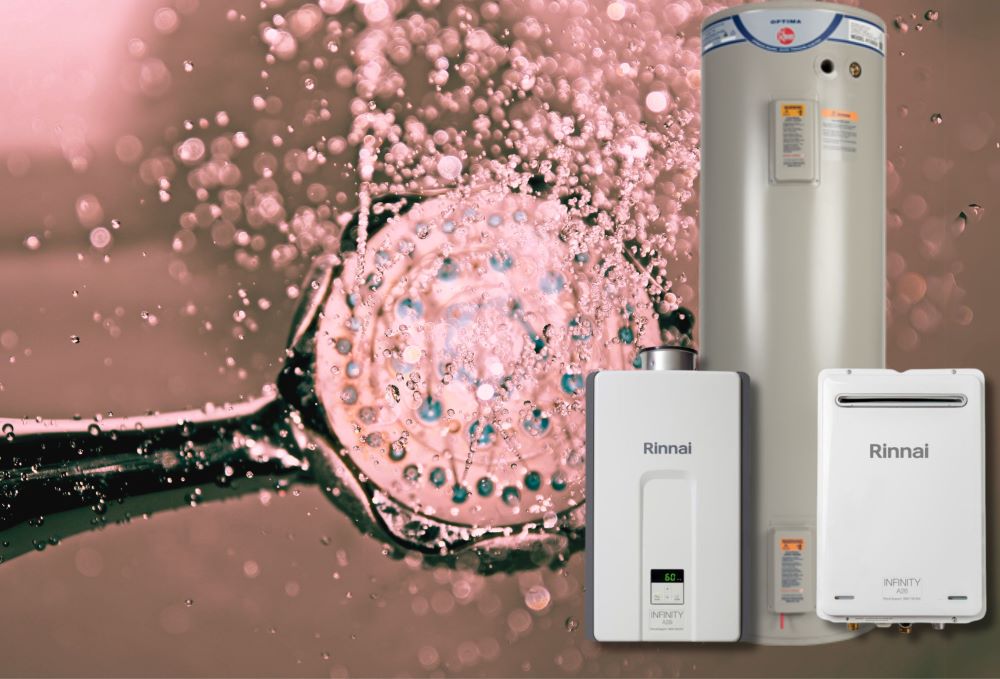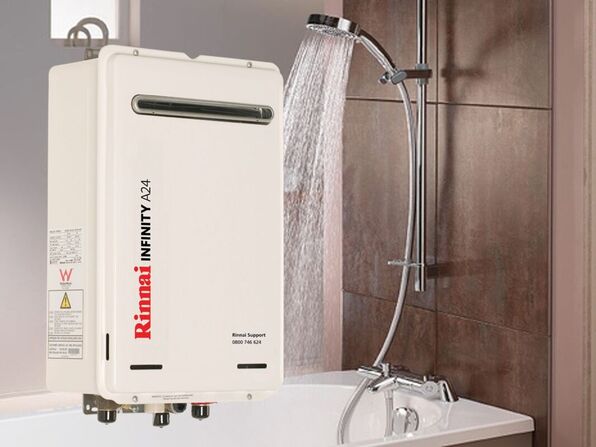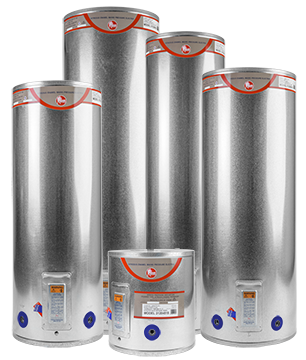|
As the trusted Wellington plumber, Maxey Plumbing and Gas takes pride in leading the way when it comes to embracing cutting-edge innovations and emerging technologies in hot water systems. We aim to keep Wellington homes at the forefront of efficiency, cost savings, and environmental responsibility. In this article, we'll shed light on the latest advancements and offer expert insights into the future of hot water provision. What Is The New Technology For Water Heating Systems?Rinnai Infinity and Rheem Wellington: One of the most revolutionary technologies in water heating is the Rinnai Infinity and Rheem systems, available in Wellington through Maxey Plumbing and Gas. These tankless water heaters offer an endless hot water supply, and their energy-efficient designs ensure you never run out of hot water again. What Is The Best Technology To Heat Water?In our professional opinion, the Rinnai Infinity and Rheem systems for your Wellington home are among the best technologies for heating water. Their tankless design, energy efficiency, and reliability make it an ideal choice for Wellington homes. However, we also recognise that the "best" technology depends on your specific needs and circumstances. What Are The Alternatives To Electric Hot Water Systems?Gas Water Heaters Maxey Plumbing and Gas offers efficient gas water heaters as an alternative to electric systems. These units provide rapid heating and can be cost-effective for homes with access to gas lines. Solar Water Heaters Solar water heaters are an excellent choice for those looking for an environmentally friendly option. Solar hot water systems harness the power of the sun to provide efficient and eco-friendly heating. Heat Pump Water Heaters Heat pump water heaters are a highly energy-efficient alternative to traditional electric heaters. These systems provide substantial savings and reduce greenhouse gas emissions. What Is The Most Environmentally Friendly Hot Water System?Solar Water Heaters: An Eco-Friendly Marvel although with Potential DrawbacksSolar water heaters are often hailed as a testament to sustainable technology, offering an eco-friendly solution to meet your hot water needs. However, despite their environmental benefits, it's essential to consider their potential drawbacks and challenges. Here's a look at some of the negatives of solar water heaters: High Initial CostsSubstantial Upfront Investment: One of the primary drawbacks of solar water heaters is the high initial installation cost. The initial expense of purchasing and installing solar panels or collectors and necessary plumbing and control systems can be significantly higher than traditional water heating systems. This cost barrier can make solar water heaters less accessible for many households. Dependence on Weather ConditionsLimited Efficiency on Cloudy Days: Solar water heaters rely on sunlight to function effectively. In regions with frequent cloudy or rainy weather, the efficiency of these types of systems can be compromised, leading to inconsistent hot water supply. During winter or in areas with limited sunlight, backup systems may be necessary, adding to the overall cost and complexity. Space RequirementsRoof Space and Aesthetics: Solar water heaters require ample roof space to install solar panels or collectors. This can be challenging for homes with limited roof areas or shaded roofs due to trees or neighbouring buildings. Additionally, some homeowners may find the appearance of solar panels on their roof unappealing. Maintenance and LifespanOngoing Maintenance Needs: While solar water heaters are generally low-maintenance, they are not maintenance-free. Regular inspections and occasional repairs are necessary to ensure optimal performance. Components like pumps and controllers may need replacement over time, adding to maintenance costs. Additionally, while the lifespan of solar water heaters is generally long, it may not match that of traditional systems, particularly in harsh weather conditions. Environmental Impact of ManufacturingProduction and Disposal: Solar panels are manufactured using energy-intensive processes and potentially harmful chemicals. While solar water heaters are eco-friendly, their production and eventual disposal can have an environmental impact. Proper recycling and disposal practices are essential points to check out if you want to minimise this impact. Financial Payback PeriodExtended Payback Time: Although solar water heaters can save money in the long run, the payback period can be extended. Depending on factors like local climate, energy prices, and system efficiency, it can potentially take several years to recoup your initial investment in solar through the energy savings. This longer payback period can deter some homeowners from choosing solar water heaters. While solar water heaters offer significant environmental benefits by harnessing the sun's energy and producing zero greenhouse gas emissions during operation. It's crucial to consider their potential drawbacks. High initial costs, weather dependence, space requirements, ongoing maintenance, environmental impact of manufacturing, and extended payback periods can influence the decision to invest in a solar water heating system. Balancing these challenges with the ecological advantages is critical to making an informed choice. What Is The Cheapest And Most Efficient Way To Heat Water?While the Rinnai Infinity and Rheem alternative gas hot water units are top-quality choices for many Wellington homeowners, the most suitable option depends on several factors that should be taken into consideration:
Maxey Plumbing and Gas: Recommending Rinnai Infinity and Rheem Systems in WellingtonMaxey Plumbing and Gas recommends the Rinnai Infinity and Rheem alternative gas hot water units for Wellington systems as a cost-effective and efficient solution for hot water needs. Their tankless design ensures you only heat water when needed, eliminating standby heat loss. Moreover, Rinnai and Rheem are known for their reliability and energy efficiency, making them an excellent choice for Wellington homeowners. However, we understand that every household is unique, and what works best for one may be better for another. We offer personalised consultations to assess your situation, budget, and hot water requirements. We aim to help you make an informed decision aligning with your financial and efficiency goals, ensuring you enjoy the most cost-effective and efficient hot water solution for your Wellington home. What Is The Most Energy-Efficient Way To Heat Hot Water?Unlocking Energy Efficiency in Hot Water Heating When it comes to heating hot water with optimal energy efficiency, it's essential to explore the technologies that have been designed to maximise energy utilisation while minimising waste. Here's a closer look at two top contenders in the realm of energy-efficient water heating: Rinnai Infinity and Rheem Systems The Rinnai Infinity and Rheem systems are perfect for Wellington homes and are a shining example of energy efficiency in hot water heating. Its tankless design ensures that hot water is only heated when needed, eliminating the standby heat loss associated with traditional storage tanks. This on-demand heating approach minimises energy waste and translates into substantial cost savings on your utility bills. Furthermore, Rinnai and Rheem are renowned for their commitment to energy efficiency and sustainability. Their systems are designed with innovative features to optimise performance while minimising environmental impact. By choosing a Rinnai Infinity or Rheem system for your Wellington home, you benefit from exceptional energy efficiency and contribute to a greener, more sustainable future. Heat Pump Water Heaters Heat pump water heaters are another standout choice for energy-conscious homeowners. These systems leverage the principles of thermodynamics to extract heat from the surrounding air and transfer it to the water, providing hot water efficiently and at a fraction of the energy cost of traditional electric heaters. Heat pump water heaters are effective in moderate climates and can achieve impressive energy savings. They are an excellent option for homeowners looking to reduce their carbon footprint while enjoying long-term cost benefits. Maxey Plumbing and Gas: Your Partner in Energy EfficiencyAt Maxey Plumbing and Gas, we highly recommend the Rinnai Infinity and Rheem systems in Wellington as top choices for achieving exceptional energy efficiency in hot water heating. These technologies are designed to align with your sustainability goals while providing significant cost savings over time.
However, we recognise that selecting the most energy-efficient system involves careful consideration of your unique circumstances. Factors like climate, household size, and budget all play a role in determining the ideal solution for your hot water needs. That's where our expertise comes in. We offer personalised consultations to assess your situation and guide you in making an informed decision that maximises energy efficiency and cost savings. With Maxey Plumbing and Gas as your partner, you're poised to embrace an energy-efficient hot water solution tailored to your Wellington home. Maxey Plumbing and Gas, your trusted Wellington plumber, is dedicated to pioneering innovations in hot water systems. We recommend the Rinnai Infinity and Rheem systems in your Wellington home for their efficiency and reliability. Nevertheless, the ideal technology for your home depends on your unique needs and goals. As technology advances, our expert team is here to guide you in making informed decisions that ensure your hot water system remains efficient, cost-effective, and environmentally responsible. Talk to us at Maxey Plumbing and Gas about your hot water system now. We are here to help. Email - [email protected] Phone - 04 390 0135 Comments are closed.
|
Need a Plumber?
|


